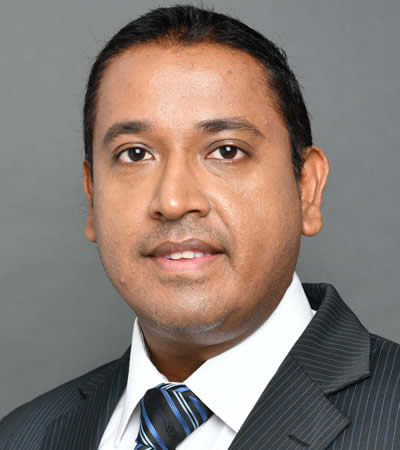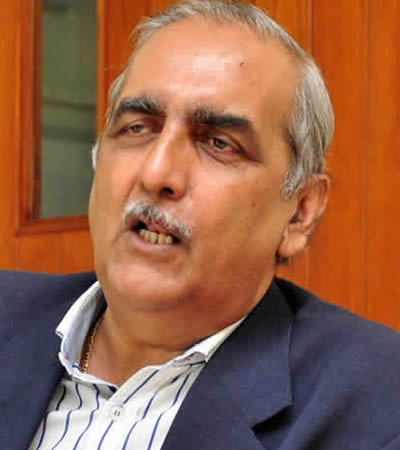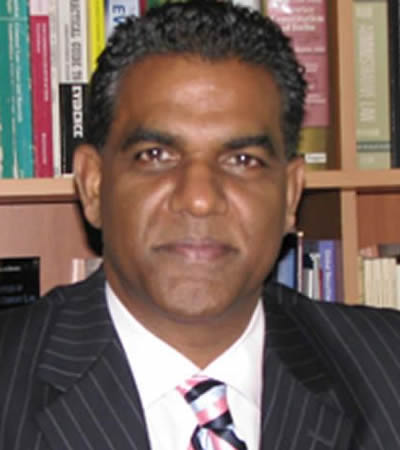
The new government has already been established with a new vision. With a global crisis looming ahead and a public debt soaring, experts in different fields underline that the new government has to look into the top five priorities to strengthen the economy. Below are five top essential priorities elaborated to elevate the country to the desired level for a more prosperous future.
Sustainable economic development

Boodeo Nem, economist, argues that where transitioning to a high-income economy is concerned, Mauritius is more than ever poised to implement some transformative and resilient economic policies to ensure sustainable economic development for the country. Three main aspects which should top the priority list of the Government are: A sustainable blue ocean economy, sustainable development of the people and finally, maintaining the internal-external balance.
Firstly, he avers that the government should encompass a range of sectors like marine biotechnology, aquaculture, maritime services, fishing and seafood, seaport activities and coastal tourism. The ocean economy undoubtedly remains a game changer for the future. “To develop further resilience in these sectors, Mauritius should focus more on high-value creation sectors like marine biotech. With a growing world blue biotech industry, this sector should remain as a priority for the government, contributing to the development of new pharmaceuticals and industrial enzymes for products/services which yield high economic value.”
Furthermore, sustainable development of the people is also a must, as highlighted by him. “With a Human Capital Index (HCI) of 0.63 on a scale of 0 to 1 (World Bank), Mauritius is comparable to Malaysia, Thailand and Vietnam. With a revamped and modernized education system, there is no doubt that our island stands all chances to bring forth the future generation of professionals. We are the highest in Africa compared on the HCI scale. Nonetheless, compared to high-income economies, which average an HCI of more than 0.75, our country still has to catch up to ensure higher productivity going forward.”
He states that with the current global economic slowdown, the annual GDP growth of Mauritius is projected at 3.5% for 2021 compared to 3.9% for 2019-20. “It will be, therefore, imminent for the Government to uphold productivity through education, training and cross-training to ensure that our country progresses on the established GDP growth path.”
According to the economist, our country has seen numerous developments in the last five years with a re-launch of economic activities following the booming construction sector. “Though the extent to which the current level of debt is worrisome can be debated, with approximately 65% debt to GDP ratio in 2019, there is a high likelihood that in the absence of a complex export structure, our exchange rate might be affected. In dealing with internal policies, our external policies might be compromised and vice-versa.”
Therefore, the onus lies on the Government to juggle their way to maintain a balanced economic outlook for the country amidst the forthcoming global economic slowdown, he adds. “However, since our country has shown its resilience during similar earlier crises, there is every reason to believe that our economy will again run on track with the current Government in office.”
Rajiv Servansingh, Chairman/Managing Director of MINDAFRICA, underlines that the new Minister of Finance has a tremendous task cut out for him, as he faces the imperative of increasing the GDP rate growth at least beyond the 4%, which seems to be a psychological hurdle. “Improved economic growth is an imperative in order to allow government to meet the costs of measures which have been included in the Party’s manifesto for the elections and the Minister of Finance is acutely aware of this. To achieve this, the government will surely be looking in the first instance at some of the low-lying fruits such as identifying and removing the constraints which are affecting the already established sectors of the economy - we all know that there are urgent measures that need to be taken in order to support the Hospitality industry, the manufacturing as well as the Agro-Industry sectors.”
Environment and ecology


Rajiv Servansingh recalls that environment protection and the development of green-related industrial platforms are fast becoming life and death issues for the future of humanity and even more urgently, for Small Island Developing States like Mauritius. “The government would surely have to introduce a mix of measures (sticks and carrots) to fundamentally change the attitude of the population of Mauritius in this regard. The weightage attached to environment protection in future large development projects will have to be reviewed to reflect the urgency of the issue. Sensitization campaigns as from primary schools will go a long way towards creating the kind of attitudinal change required.”
Alexandre Barbès-Pougnet, Jurist-Researcher in International and Comparative Law of the Environment, highlights that improving the environmental situation in Mauritius would first require compliance with international conventions on the environment and climate change, of which we are signatories. He also avers that existing institutions which have demonstrated inefficiency such as environmental court, the environmental police or other state authorities, reforms should be adopted. “Alongside purely legal and institutional issues, it is now essential to embrace the international trend of strengthening participatory democracy by recognizing the special status of NGOs and associations whose purpose is to ensure environmental protection or, more broadly, the protection of human rights.

Unemployment

Manisha Dookhony, economist and Managing Partner- Rwenzori Consulting, is of the view that unemployment is a priority for the new government. She states that we have structural issues related to unemployment. “Unemployment is at 6.9%, with 40,400 unemployed. A majority of which, that is, 23,000 (57%), are women. In fact, the Activity Rate is of 48% and there is a feminisation of unemployment. 18,200 or about 45% of the unemployed were aged below 25 years.”
She further adds that we have an ageing population and high emigration (70% of students do not come back from foreign studies and job-related expatriation). “Yet there is work in some sectors given the growing immigration (50,000). These reflect deep problems on our skilling, Social Capital and linkage between industry and education institutions.”
To reach higher levels of growth, we would need to enhance human capital accumulation through efficiency and skill enhancement and look at ways to expand the labour force increases including migration, she says.
According to her, some areas to be tackled are as follows:
- lack of validation of trades as is done in France. The best workers in France not only bring pride to their area of occupation, but also a significant transmission of know-how. Target jobs for 25% tertiary educated unemployed & 45 % not holding up to SC. We need to review work conditions to make some types of jobs more attractive to Mauritian labour. We also need to create a certification process to validate some types of jobs, for example, masonry certification.
- Address the issue of supply and demand by state agencies that do file analysis and matching to facilitate recruitment and job application and provide the necessary soft skills for job seekers, for instance, of how it is done in Switzerland.
- There is a real gap between academic training and the demand of the labour market. To overcome this, employers can create first-level jobs and implement work-study programs. Subsequently, there should be close collaboration between the education sector and the private sector. The demand of the private sector should be taken into account in the training offered. These training courses should be able to evolve in line with industry trends and changes.
- To be recruited, you must always know someone, touch a word to someone else. So many very deserving and competent talents do not find openings. It further exacerbates access to work opportunities for young people. This is unfortunately also one of the factors of brain drain. Supporting young people through mentorship could allow a larger access to the job market.
- The most successful universities often have a counselling service and a placement service for young graduates. To do this, there is close collaboration between recruiting companies and these universities. These initiatives and public-private partnerships could serve as inspiration. Finding solutions to the problem of youth employment requires a great deal of public and private collaboration. The government can develop national action plans for youth employment, but without the support of educational institutions and private operators, these plans will be in vain. Private/Public collaboration for the provision of systematic alternatives with good employment potential for primary and early secondary failures.
- Identify future skills and adapt teaching methods and content accordingly (sustainability, emotional intelligence, leadership, confidence, projects).
SMEs

The development of SMEs in the context of a larger Industrial Policy environment would finally remain a crucial element of our future economic growth with interesting opportunities for a true economic democratization, says Rajiv Servansingh. “Investment in the emergence of a new breed of young entrepreneurs more open to the application of innovative and advanced tools such as Artificial Intelligence and other applications is a condition for shifting the economy to the objective of a ‘high income’ country.
As for the more ‘classic’ SMEs, which are struggling in spite of the best efforts of their promoters due to lack of access to finance or more sophisticated marketing and management tools, there is clearly a need to take a more creative approach in order to remove the constraints which limit their development. In this context, the concept of clustering could offer some avenues of solutions.”
Law and Order


According to Dev Erriah, one of the most important priorities of the new government should be the review and the reinforcement of law and order. “Law and order is essential in any democratic country. The government should essentially look at the police and how the police will enforce the law and maintain order in our country, which has deteriorated since the past two decades,” uttered the Barrister at Law.
The first priority in relation to law and order, highlights Dev Erriah “will be to look at the whole structure of the police force as to whether it is not outdated to fit in the present context. The deterioration is so consequential that it is vital to have a look at whether the present methodology of policing, that is recruitment of people, training and equipment, are the correct ones to deal with the challenges of 2020. The people are ahead of the police in terms of visual and media means, namely through technology. The police are not able and do not have the capacity to follow the evolution and trend. The means that the police should match with all types of issues that we currently have to face in our society. This is why it is crucial for the government to give the proper means to the police for them to be able to enforce, as it is their prime aim.”
He trusts that it is high time that the police is given full support to work effectively. “The police should also be properly manned in certain situations. In addition the service system, which dates before independence, should be completely reviewed. The Alliance Lepep proposed the introduction of the Police and Criminal Evidence Act in its electoral manifesto in 2014. I believe this government should no more delay its introduction.”

Notre service WhatsApp. Vous êtes témoins d`un événement d`actualité ou d`une scène insolite? Envoyez-nous vos photos ou vidéos sur le 5 259 82 00 !





















